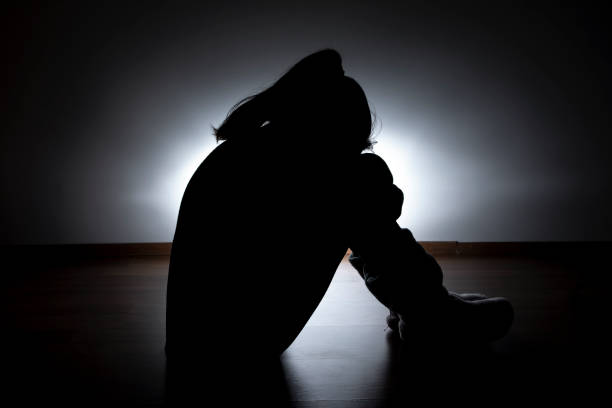How Myths About Mental Health Affect Children: A Journey Through the Eyes of Little Aarohi
Once upon a time, in a quaint town surrounded by rolling hills and lush green fields, there lived a bright, curious girl named Aarohi. With her twinkling eyes and infectious smile, Aarohi brought joy to everyone she met. But beneath her cheerful demeanor, Aarohi was grappling with a secret that neither she nor her parents fully understood. Aarohi was struggling with anxiety.
The Beginning of the Journey
Aarohi’s story began when she was just eight years old. Her parents, Priya and Raj, noticed changes in her behavior. Once an enthusiastic and outgoing child, Aarohi had become withdrawn and fearful of going to school. She often complained of stomachaches and headaches, which the doctor dismissed as nothing serious. “It’s just a phase,” they said. “She’ll grow out of it.”
Priya and Raj believed the doctor. After all, there was a common myth that children couldn’t experience mental health issues the way adults did. They thought Aarohi was simply being a child, prone to occasional bouts of nervousness and tantrums.
The Weight of Misunderstood Myths of Mental illness
Months passed, and Aarohi’s condition worsened. She started having nightmares and would wake up screaming in the middle of the night. Her parents were at a loss. They tried everything they could think of—more playdates, less screen time, and even new hobbies. But nothing seemed to help.
One evening, Priya confided in her friend, Kavita, about Aarohi’s struggles. Kavita was sympathetic but brushed it off, saying, “Kids these days are just too sensitive. We never had these issues growing up. It’s all in her head.”
This well-meaning but misguided advice only deepened Priya and Raj’s confusion. They didn’t realize that another harmful myth was at play: the belief that mental health issues were a sign of weakness or simply a figment of imagination.

Breaking Point
The tipping point came when Aarohi had a panic attack at school. Her teacher called Priya, urging her to come to the school immediately. When Priya arrived, she found Aarohi curled up in a ball, trembling and crying. The sight broke Priya’s heart. She realized that Aarohi’s struggles were real and serious, and they needed to do something about it.
The Journey to Understanding Mental health Misconceptions
Determined to find answers, Priya and Raj sought help from Dr. Iyer, a child psychologist. Dr. Iyer was kind and patient, and she explained that mental health issues in children were not only real but also common. She debunked several myths that had clouded Priya and Raj’s judgment:
- Myth: Children Don’t Experience Mental Health Issues
- Reality: Children can and do experience a range of mental health issues, including anxiety, depression, and ADHD. These conditions are not just adult problems; they affect children too.
- Myth: It’s Just a Phase
- Reality: While some behavioral changes are part of growing up, persistent symptoms that interfere with a child’s daily life should be taken seriously. Ignoring these signs can lead to more severe issues later on.
- Myth: Mental Health Problems Are a Sign of Weakness
- Reality: Mental health issues are medical conditions that require treatment, just like any physical illness. They are not a reflection of character or strength.
- Myth: Therapy Is Only for Adults
- Reality: Therapy can be highly beneficial for children. Child psychologists use age-appropriate methods to help children understand and manage their emotions.
Steps Towards Healing
Dr. Iyer worked with Aarohi through play therapy and cognitive-behavioral techniques tailored for children. She also educated Priya and Raj on how to support Aarohi at home. They learned to recognize triggers, create a safe and comforting environment, and communicate openly with Aarohi about her feelings.
Over time, Aarohi began to show signs of improvement. The nightmares became less frequent, and she started to open up about her fears. She still had bad days, but they were fewer and farther between. Most importantly, Aarohi knew she was not alone; her parents were there to support her every step of the way.
Spreading Awareness
Inspired by their journey, Priya and Raj decided to share their story with other parents. They started a blog to raise awareness about children’s mental health and debunk common myths. They wanted to create a safe space for parents to share their experiences and learn from each other.
Their blog, “Aarohi’s World,” quickly gained traction. Parents from all over shared their own stories, and Priya and Raj found solace in knowing they were not alone. They realized that by sharing their journey, they were helping others navigate the often confusing and isolating world of mental health.
The Ripple Effect
One story on the blog resonated deeply with Priya. It was from a mother named Seema, who described her son’s battle with depression. She wrote about the guilt and helplessness she felt, the countless nights spent comforting her crying child, and the relief she experienced when they finally found a therapist who could help.
Reading Seema’s story, Priya felt a renewed sense of purpose. She reached out to Seema, and they formed a support group for parents of children with mental health issues. The group met once a month to share experiences, offer advice, and support each other.
Through the support group, Priya met Anjali, whose daughter, Diya, was also struggling with anxiety. Anjali had believed the same myths that Priya once did, and she was grateful for the guidance and support she found in the group.
Changing the Narrative
Priya and Raj’s efforts began to make a real difference in their community. They organized workshops at local schools to educate teachers and parents about children’s mental health. They collaborated with Dr. Iyer to create resources that debunked myths and provided practical advice.
One of the most impactful events was a panel discussion featuring children who bravely shared their own experiences with mental health. Aarohi, now ten years old, spoke about her journey. She described her anxiety in her own words and talked about how therapy had helped her.
Hearing Aarohi’s story from her own perspective was a turning point for many parents in the audience. They realized that mental health issues were not just abstract concepts but real challenges faced by real children.
A Brighter Future
Aarohi’s journey was far from over, but she was no longer alone. She had the support of her family, her therapist, and a community that understood and cared. Priya and Raj had learned that myths about mental health could be harmful, but they had also discovered the power of education and support.
Their blog continued to grow, reaching more parents and caregivers every day. They received messages from people who had been touched by their story, thanking them for the courage to speak out and the wisdom to educate others.
Conclusion: A Call to Action
Aarohi’s story is a reminder that mental health issues in children are real and significant. Myths and misconceptions can prevent children from getting the help they need, leading to prolonged suffering and more serious problems down the road.
As parents, caregivers, and members of the community, it’s our responsibility to educate ourselves and others about children’s mental health. By debunking myths and providing support, we can create a world where children like Aarohi receive the understanding and care they deserve.
If you or someone you know is struggling with mental health issues, don’t hesitate to seek professional help. Remember, mental health is just as important as physical health, and every child deserves to grow up feeling safe, supported, and loved.
Together, we can break the cycle of myths and misconceptions and pave the way for a brighter, healthier future for our children.

